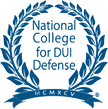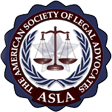Arrested for Trafficking Stolen Property? Our Team Has Answers
Trafficking stolen property is a serious property crime. You’re facing a felony that could potentially land you in prison. But Emerald City Law Group is here to help you navigate this uncharted territory. Our stolen property lawyers can help navigate the Seattle criminal justice system and protect you against the harshest penalties for selling stolen goods.
From keeping you out of prison to helping you keep your record clear, Emerald City Law Group is ready to fight for you. Contact us for unmatched defense.
Based in Seattle, We Assist People Across Washington and Offer Virtual Consultations. Initial Consults are Free, Confidential, and We’re Available 24/7 to Answer Your Questions.
What Is Trafficking Stolen Property?
Trafficking stolen property in Washington is more than just possessing stolen goods. It falls under the Washington Criminal Profiteering Act and implies participation in organized crime for profit. The Revised Code of Washington (RCW) 9A.82.050, defines Trafficking in Stolen Property in the First Degree as knowingly initiating, planning, or managing the theft of property for sale.
Trafficking in Stolen Goods in the Second Degree involves recklessly dealing with stolen property, where one is aware of the risk of the goods being stolen but chooses to ignore it.
Understanding Trafficking
Trafficking encompasses a range of illicit activities related to stolen property. Specifically, it involves selling, transferring, or disposing of stolen property to another party. Additionally, it can include actions like buying, receiving, or possessing stolen goods with the intent to subsequently sell or transfer them to someone else.
Trafficking Stolen Property: What to Know
As one of the more serious theft-related offenses in Washington, understanding the nuances and implications of this crime is crucial. Whether you’re trying to gain a better grasp of the law or are facing accusations, here’s what you need to know about dealing with stolen property and how a defense attorney can help.
The Penalty for Selling Stolen Goods
While many thefts are misdemeanors, trafficking stolen property is a felony. The penalties you’ll face depend on the degree of your charge and any aggravating factors.
- Trafficking in Stolen Goods in the First Degree is a Class B Felony, punishable by up to 10 years in prison and a fine of up to $20,000.
- Trafficking in Stolen Goods in the Second Degree is a Class C felony, punishable by up to five years in prison and a fine of up to $10,000.
Collateral Effects of Trafficking Stolen Property
In addition to time in custody, fines, and restitution, a conviction of trafficking stolen property in Washington can have a number of collateral consequences, which can have a significant impact on your life. The most common collateral consequences for selling stolen property are:
- You may be disqualified from specific jobs, such as those that require a professional license or involve working with children or vulnerable adults.
- A conviction can make it difficult to find housing, as many landlords screen tenants for criminal records.
- A felony conviction can make getting into college or obtaining financial aid challenging.
- A conviction can make it difficult to qualify for public benefits, such as food stamps and housing assistance.
- Immigration Restrictions: A conviction can result in deportation for non-citizens.
Dealing with Trafficking Stolen Property Charges
When you’re arrested for trafficking stolen property in King County or anywhere in Washington, you will be taken to the police station or local jail. You will be searched, and all personal belongings will be inventoried. You will also be fingerprinted and photographed.
The police should give you a Miranda warning, which informs you of your constitutional rights, including the right to remain silent and the right to an attorney. You may be questioned by the police. You should never answer their questions without the advice of a trained attorney for stolen property.
Your first court appearance will be an arraignment. You will be informed of your official charges and bail may be set. You will be given an opportunity to plead guilty or not guilty. Either you will be released on your own personal recognizance or bail will be set by the judge.
Defending Against a Selling Stolen Property Charge in WA
Just because you’ve been charged with trafficking stolen property does not mean you will be convicted. The prosecutor must prove beyond a reasonable doubt that you committed the crime. That means that the evidence presented must be so convincing that no rational person could have any reasonable doubt about your guilt.
There are many defense strategies that your stolen property lawyer can use to poke holes in the prosecutor’s case. Some common defenses that you might use include that there was a lack of intent or mistake of fact. Your attorney can present the best defenses on your behalf to prove your innocence, reduce the charge, or secure a more favorable resolution.
Seattle Trafficking Stolen Property Info & Resources
Our stolen property attorneys are here to help you handle your case and protect your rights. We have answers to your questions. Contact our skilled legal team at Emerald City Law Group immediately.
How Does Trafficking Stolen Property Differ from Possession of Stolen Goods?
Possessing stolen property differs from trafficking. The former involves having the goods without evidence of selling or transferring them. While both acts can lead to felony charges, their severity differs. Possession of Stolen Goods in the First Degree, excluding vehicles and firearms, is classified as a Seriousness Level II, whereas Possession of Stolen Goods in the Second Degree, also excluding vehicles and firearms, is categorized as a Seriousness Level I.
Does the Law Require Direct Participation in a Theft for a Trafficking Charge?
No. Even if your involvement was indirect, you can face charges if there’s evidence that you knew you were dealing with stolen goods.
Is Possession of Stolen Property the Same as Trafficking?
No. While possession involves having stolen goods, trafficking implies a further step of selling, transferring, or profiting from those goods.
What actions are considered as “trafficking”?
Trafficking includes actions like selling, transferring, distributing, and disposing of stolen property, as well as buying, receiving, or possessing stolen goods with the intent to sell or transfer them.
Can I Be Charged with Trafficking if I Unknowingly Bought Stolen Property?
If you genuinely did not know and had no reason to believe the property was stolen, it might be a defense. However, if there’s evidence suggesting you recklessly ignored signs that the goods were stolen, you could face charges.
Don’t Wait. Call Our Seattle Stolen Property Lawyers
It’s essential to contact an attorney for stolen property at Emerald City Law Group as soon as possible. They will need to begin gathering evidence to support your case right away. If you’re unable to reach out to us, a friend or family member can call Emerald City Law Group. We can advise them about the process and help you get out of jail.
Emerald City Law Group Will:
- Explain your charges and potential penalties and collateral consequences.
- Ensure your legal rights are protected throughout the criminal justice process.
- Investigate the case against you and gather evidence to support your defense.
- Negotiate a plea deal with the prosecutor to get your charges reduced.
- Work to get your charges dismissed.
- Represent you in court and present a strong argument to the jury.
Defense Attorneys Serving Washington – Free Consults 24/7
Emerald City Law Group provides Seattle and the greater Washington area with high-caliber legal representation for those facing accusations of trafficking stolen property.
Seattle – Local Areas Served
- King County – Bellevue, Auburn, Kent, Renton, Federal Way, Kirkland, Redmond, Bothell, Carnation, Duvall, Issaquah, Maple Valley, Mercer Island, Sammamish, Seattle, & Woodinville
- Snohomish County – Everett, Lynnwood, and Marysville.
- Pierce County – Tacoma, Puyallup, Gig Harbor, and Lakewood
- Grays Harbor
- Kittitas County
- Spokane County
- Cowlitz County
- Douglas County
- Mason County
- Skagit County
- Thurston County
- Island County
- Mason County
- Grays County
- Kitsap County
- Lewis County
- Whatcom County
- Whitman County
- San Juan County






